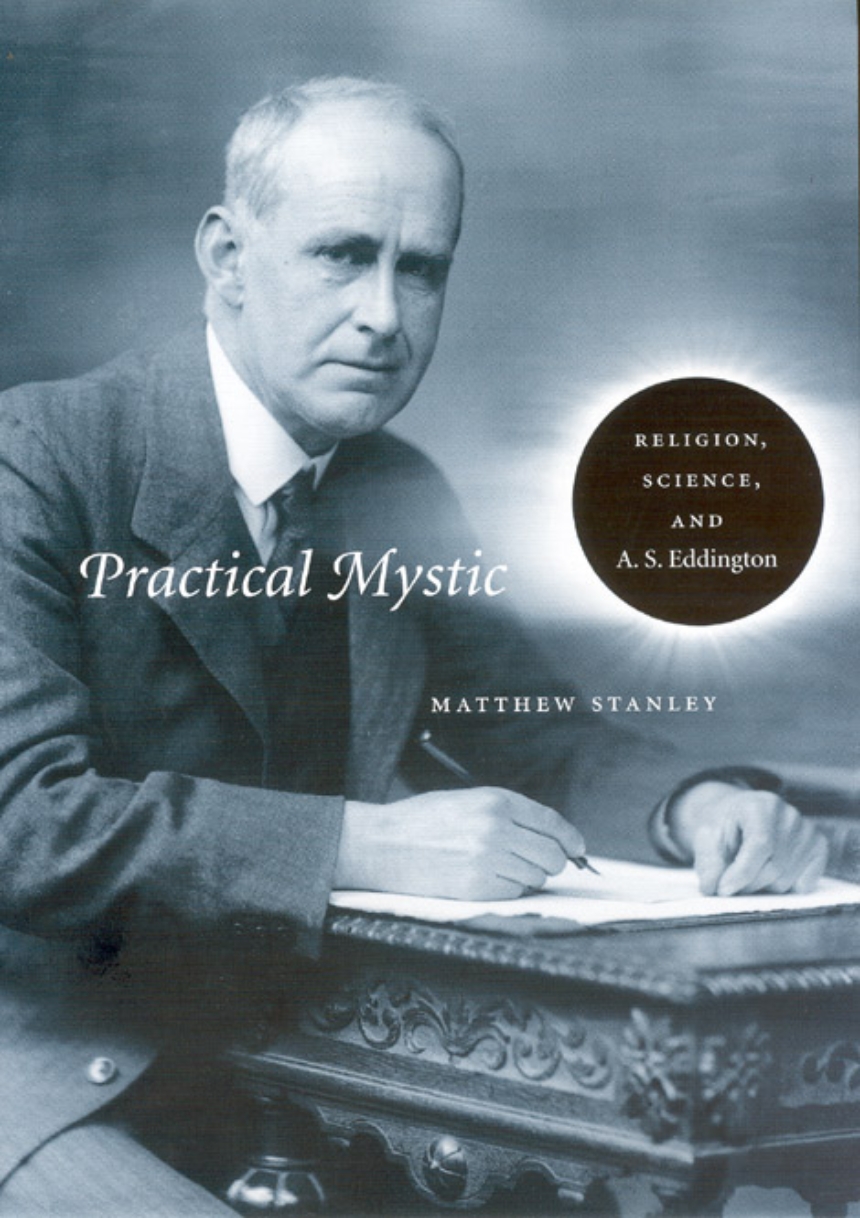Practical Mystic
Religion, Science, and A. S. Eddington
Science and religion have long been thought incompatible. But nowhere has this apparent contradiction been more fully resolved than in the figure of A. S. Eddington (1882–1944), a pioneer in astrophysics, relativity, and the popularization of science, and a devout Quaker. Practical Mystic uses the figure of Eddington to shows how religious and scientific values can interact and overlap without compromising the integrity of either.
Eddington was a world-class scientist who not only maintained his religious belief throughout his scientific career but also defended the interrelation of science and religion while drawing inspiration from both for his practices. For instance, at a time when a strict adherence to deductive principles of physics had proved fruitless for understanding the nature of stars, insights from Quaker mysticism led Eddington to argue that an outlook less concerned with certainty and more concerned with further exploration was necessary to overcome the obstacles of incomplete and uncertain knowledge.
By examining this intersection between liberal religion and astrophysics, Practical Mystic questions many common assumptions about the relationship between science and spirituality. Matthew Stanley’s analysis of Eddington’s personal convictions also reveals much about the practice, production, and dissemination of scientific knowledge at the beginning of the twentieth century.
Eddington was a world-class scientist who not only maintained his religious belief throughout his scientific career but also defended the interrelation of science and religion while drawing inspiration from both for his practices. For instance, at a time when a strict adherence to deductive principles of physics had proved fruitless for understanding the nature of stars, insights from Quaker mysticism led Eddington to argue that an outlook less concerned with certainty and more concerned with further exploration was necessary to overcome the obstacles of incomplete and uncertain knowledge.
By examining this intersection between liberal religion and astrophysics, Practical Mystic questions many common assumptions about the relationship between science and spirituality. Matthew Stanley’s analysis of Eddington’s personal convictions also reveals much about the practice, production, and dissemination of scientific knowledge at the beginning of the twentieth century.
320 pages | 16 halftones, 2 line drawings | 6 x 9 | © 2007
History: British and Irish History
Physical Sciences: Astronomy and Astrophysics, History and Philosophy of Physical Sciences
Religion: Religion and Society
Reviews
Table of Contents
Acknowledgments
Introduction
1. The Quaker Renaissance: Making a Religious Scientist
2. Mysticism: Seeking and Stellar Models
3. Internationalism: The 1919 Eclipse and Eddington as Quaker Adventurer
4. Pacifism: Confronting the State and Maintaining Identity in War
5. Experience: From Relativity to Religion
6. Religion in Modern Life: Science, Philosophy, and Liberal Theology in Interwar Britain
7. Thinking about Values and Science
Notes
Bibliographic Note
Bibliography
Index
